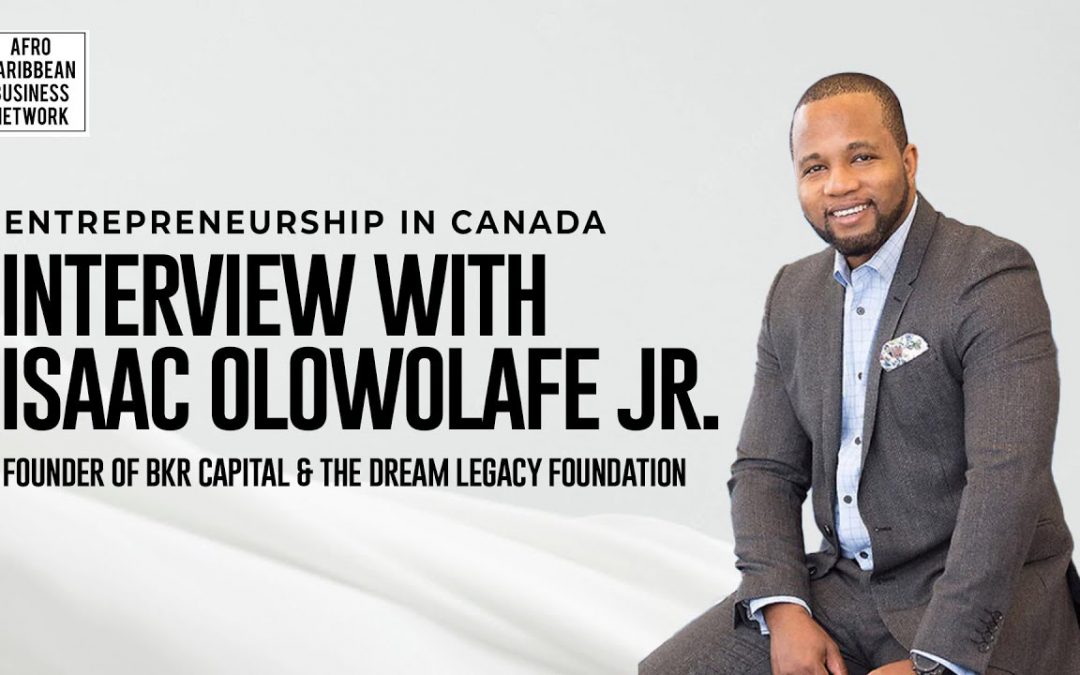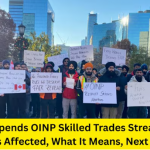Watch the full interview with Isaac Olowolafe Jr. here: https://youtu.be/NH8cfvQjN2I
At ACBN, we believe in I am because we are. That principle reminds us that building our collective future requires not only entrepreneurship but also ownership of the infrastructure that sustains our communities.
We sat down with Isaac Olowolafe Jr., Founder of Dream Maker Inc. and Dream Legacy, to talk about his journey in real estate, venture building, and community mobilization. His message is clear: Black entrepreneur infrastructure development is non-negotiable if we want to build generational wealth and lasting impact.
Dream Legacy: Building the economic bridge
Dream Legacy was created to bridge gaps between the Black community and institutions. Its mission focuses on three pillars:
Building institutional relationships – partnerships with universities, unions, corporates, and hospitals.
Driving home ownership – helping families through brokerage services, building new housing units, and financial literacy.
Growing small businesses – launching initiatives like the first Black Tech incubator at DMZ and a Skilled Trades program to train 1,000 Black entrepreneurs.
Takeaway for entrepreneurs: Scaling small businesses increases jobs, mentorship, and representation in our community.
Data and execution drive change
Isaac emphasizes that institutions respond to data and results. Dream Legacy is working with universities and Black organizations to collect data that translates into resource centres and systemic change.
Lesson for business owners: To earn a seat at the table—whether in procurement, infrastructure budgets, or housing policy—you must prove your capacity through execution.
Why Infrastructure, is Essential!
Isaac is clear: our community cannot thrive without owning and developing infrastructure. Many communities have invested in this for decades; we’re just beginning. By becoming “city builders,” Dream Maker has shown how projects in Toronto can be models scaled across Canada.
Insights for Black entrepreneurs:
Become part of the supply chain—learn how to plan, contract, and execute developments.
Understand the ripple effect—when we are at the table in major redevelopments, the economic impact creates jobs, capital, and social investment.
Collaborate—no one developer can carry this alone; building consortia strengthens collective capacity.
Mentorship, trades, and ownership
Representation matters. Dream Legacy is mentoring the next generation to avoid past mistakes, while ensuring youth see real examples in trades and entrepreneurship. With plans like a 28,000-square-foot Business Centre, the vision is to create spaces where Black entrepreneurs can learn, build, and grow.
The call to action: Build for the long game
Isaac reminds us that this is the economic phase of our community journey. Infrastructure development is expensive and risky, but without it, we cannot solve issues like healthcare gaps, job shortages, or housing needs.
His challenge to us: Be in the trenches. Collaborate, share ideas, and commit to the long-term vision. The future is ours to build—but only if we build it ourselves.
Watch the full interview with Isaac Olowolafe Jr. here: Watch on YouTube




